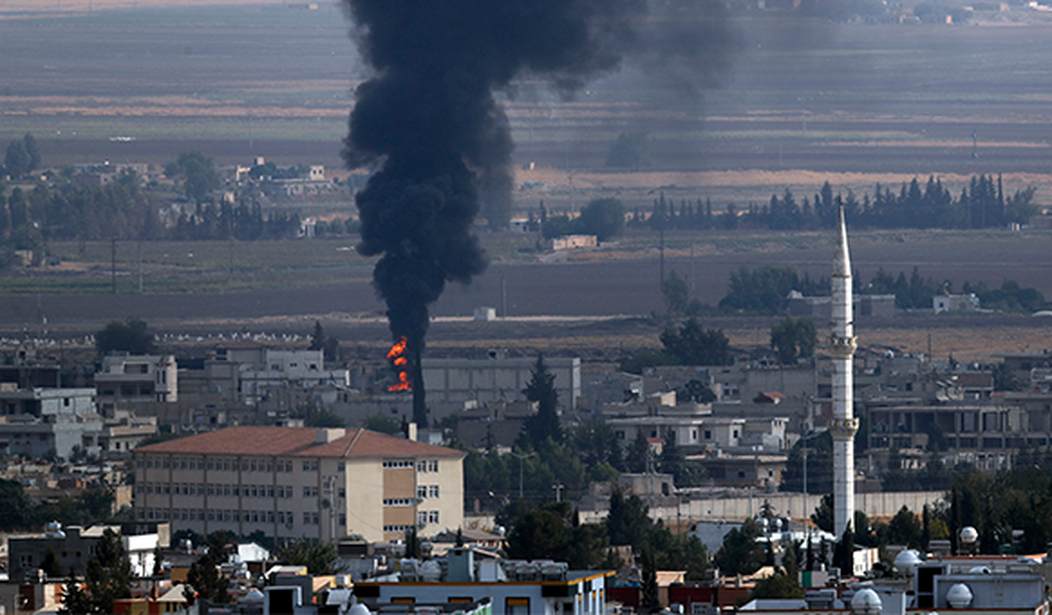After beginning a withdrawal process from northern Syria a few weeks ago, President Trump has given approval for a renewed, expanded mission across a large swath of the country, ostensibly so U.S. forces can “secure the oil.” This reversal comes amid rising tensions between Turkey, Russia, Syria, and the Kurds over the contested area U.S. forces previously occupied. Now, Ankara is working to establish a “safe zone,” which Damascus and the Kurds both oppose, leaving Russia with the unenviable role of trying to prevent this multilateral war from getting any hotter.
The U.S. certainly could have exited northern Syria in a more graceful manner, but exit was ultimately the right call. Moving troops back into Syria needlessly puts U.S. forces in harm’s way, risks further escalation, and counterproductively keeps Syria fractured.This move is all risk and no reward. The U.S. should forget the oil and methodically leave Syria for good.
There are several reasons why leaving U.S. forces behind in Syria to protect its oil fields for the Kurds is a bad idea. First, U.S. troops have no legal authority to operate in Syria in the first place. Congress never authorized U.S. intervention, which has run the gamut from overt attempts to oust Syrian President Bashar al-Assad and battling the Islamic State to countering Iranian influence and protecting the Kurds from Turkey. When the president announced his plan to reshuffle U.S. troops from Syria to Iraq, members of Congress produced bills to keep U.S. forces from leaving—but they never voted to send them there in the first place.
There’s also no security rationale for this move. Secretary of Defense Mark Esper has said it is to prevent ISIS fighters from seizing the oil. But the remnants of ISIS are fractured, lack territory, have many local enemies, and certainly don’t have a fleet of oil tankers or other infrastructure needed to turn the oil into profit.
Recommended
If anything, this move may unintentionally embolden ISIS by not allowing Assad and his Russian allies to fully retake the country. Keeping Syria fractured in this way helps extremist elements, as the mission to kill ISIS leader Abu Bakr al-Baghdadi showed. Baghdadi was hiding out in Idlib province, which is the last bastion of Syrian rebel factions. Indeed, ISIS originally took territory in eastern Syria while Assad was busy battling rebels in the west.
Assad’s regime is reprehensible, but his consolidation of power will not benefit ISIS. As Harvard’s Stephen Walt wrote in Foreign Policy: “Once Assad regains full control, the Islamic State becomes his problem, not the United States. He is certain to deal with the group ruthlessly because the Islamic State is a radical Sunni movement that views Syrian Alawites as apostates.”
Indefinite U.S. presence in Syria—whether to keep the Syrian regime from Syria’s oil or otherwise—features all of the same risks of escalation that have been present throughout the civil war: The U.S. could be drawn into costly—and potentially disastrous—conflict with Syria, Russia, or Iran with no justifying security gain. American power is adversely affected by staying in Syria, a strategically unimportant nation in a region of diminishing importance.
Keeping U.S. troops in Syria is a task that comes with nearly nothing but downsides. It accomplishes nothing for the U.S. but puts American forces in harm’s way for murky, dubious aims. The best policy is the one we should have pursued immediately after the ISIS caliphate fell: withdrawal.
Jerrod A. Laber is a fellow at Defense Priorities. Follow him on Twitter @JerrodALaber.

























Join the conversation as a VIP Member